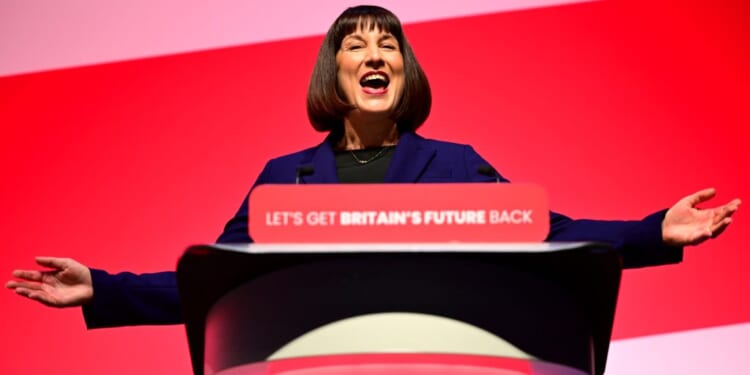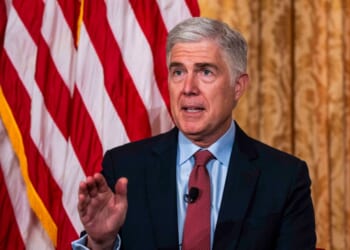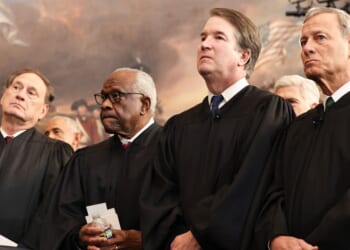If you’ve ever thought Rachel Reeves appears impotent, it’s because she wilfully chose impotence last year. Before she even moved into 11 Downing Street, the incoming Chancellor acquiesced to the straitjacket of constraints imposed on her by the Bank of England, the City of London and the Office for Budget Responsibility (OBR). But, to be fair, Reeves is not the first chancellor to undermine her own powers. In 1997, in a bid to project an image of economic responsibility, Gordon Brown granted the Bank of England independence to set monetary policy. And in 2010, George Osborne went a step further, establishing the OBR, another constraint on the Chancellor’s fiscal choices.
According to the logic of the radical centre, politicians are easily lured by a siren’s song: the electorate’s demands for higher spending and lower taxes. And so they must bind themselves to a Ulysses pact. Homer’s hero tied himself to his ship’s mast and ordered his sailors to plug their ears with wax while sailing past the sirens’ coast. Similarly, centrist chancellors tie themselves to the mast of the Bank of England and the OBR — whose technocrats, their ears stuffed with the wax of economic models, are only too happy to run the economy on our behalf.
The problem with this centrist delusion is that, unlike meteorology or other hard sciences, there are no real experts to turn to on macroeconomic matters. As John Kenneth Galbraith once put it: “[t]he only function of economic forecasting is to make astrology look respectable.” There is a reason why not once in the history of capitalism have economic models predicted any major turning point: unlike the weather, which does not give a damn about our predictions or theories, what we call “the economy” is profoundly influenced by our predictions and theories regarding “the economy”.
In other words, economic models are constitutionally incapable of predicting economic phenomena reliably. Consider the Bank of England’s econometric models, which predict every quarter that inflation will fall below the Bank’s maximum target of 2% by the end of the year. These models are built on the assumption that inflation will revert to 2%, which is why they predict that it will. Mistaking an assumption for a forecast is a mistake that would be laughable if it were not so dangerous. And it is not just that.
If you look under the bonnet of the Bank of England’s models, you will find something else that is very strange. There is an assumption that there exist well-defined relationships linking the rate of interest with investment and with inflation: for example, if interest rates jump to, say, 6%, investment will fall by, say, 1% and inflation by, say, 0.8%. Unfortunately, these relationships are not just difficult to quantify — they are, in fact, impossible to define. The reason is that prices (and inflation) depend far more on variables that the Bank of England neither observes nor controls (such as the fluctuating monopoly power of businesses or overseas energy prices) than on the overnight interest rate that it controls. Similarly with the OBR’s medium- and long-term projections of growth: like sausages, if you knew how they were made, you would not want to touch them.
This is why Rachel Reeves’ predecessors took the Bank of England and OBR forecasts with a massive pinch of salt, seldom hesitating to break their own rules when their best-laid plans were derailed. But not Reeves: paralysed by the spectre of Liz Truss re-emerging from the netherworld of financial catastrophes, the Chancellor is not only choosing to remain within her self-imposed straitjacket but is also reluctant to loosen its straps even a little to give herself some room to manoeuvre. Two examples illustrate this self-defeating reluctance.
First, Reeves claims she has no alternative than to raise taxes by around £30 billion, or 1% of national income, annually. Why? Only because the OBR says so. And why does the OBR say this? Because, in an attempt to repair its awful reputation for overestimating growth, the OBR suddenly downgraded its productivity growth estimate for the next decade. In short, taxes will go up because a panel of experts, known for their appallingly wrong forecasts, are now forecasting that their forecast was wrong.
If the OBR were similar to the Met Office, and the economy the weather, perhaps Reeves would have cause to stick to the OBR’s advice. But productivity depends on investment, which depends on the Chancellor’s choices: its path cannot be predicted by the OBR independently of the Chancellor’s policy choices. By deferring to the OBR to raise new taxes to an arbitrary number, Rachel Reeves is abdicating her responsibility for the economy.
Second, let’s say, for argument’s sake, that she really must find an additional £30 billion of so-called fiscal space annually. Why raise taxes when she can simply end the £34-billion annual payment the Treasury advances to the City of London for precisely nothing in return? As I explained earlier this year, Reeves has actively allowed the Bank of England to damage the Treasury’s bottom line in two unconscionable ways. By selling off UK Government bonds at a lower price than the Bank purchased them for, she incurred an accounting loss that the Treasury is now plugging and increased the Government’s borrowing costs. Additionally, by choosing to pay private bankers the higher interest rate on every pound they keep in their Bank of England reserve account, the Government has been subsidising the bankers to avoid lending out billions to the private sector.
“Taxes will go up because a panel of experts, known for their appallingly wrong forecasts, are now forecasting that their forecast was wrong.”
Could Reeves have prevented this madness? Is she not bound by the independence of the Bank of England? In the same way that Gordon Brown granted independence to the Bank, Rachel Reeves could have restricted its powers: by insisting it adopt two of the European Central Bank’s sensible policies. Firstly, hold the Bank’s stock of UK Government bonds until maturity to avoid losses from selling them cheaply on the secondary bond market. Secondly, pay interest to bankers only for a small portion of the money they deposit.
What if the Bank of England refused to comply with the Chancellor’s demands? Then she could respond by passing a bill that prevents the Treasury from reimbursing the Bank of England for such self-inflicted losses. Would this not cause the Bank of England to seek insolvency? Of course not. Central banks are not like private banks: as long as they issue the state’s currency, they cannot go broke even if they have negative equity for years on end.
Instead of confronting the Bank of England and showing less deference to the OBR’s predictions, Reeves resorts to acts of total self-sabotage: allowing bracket creep to tax more people whose purchasing power has shrunk; penalising those who sacrifice salary for future pensions; and impeding the green transition with an absurd per-mile tax on electric vehicles.
The worst part is that Reeves has forced us to debate matters that do not matter, such as foolish fiscal rules, while ignoring those that do. Since at least the 2008 financial crisis, Britain has been caught in a terrible situation of low investment, low wages, low productivity and, crucially, low expectations. Every government since 2008 has failed in its one key task: to convert the vast sums of money sloshing around in the City into productive investments.
For 17 years now, this failure has exacerbated the country’s “finance curse”. Britain is plagued by a process whereby high liquidity and low investment bolster Britain’s assetocracy, draw more foreign capital into the City (which is not invested in manufacturing), increase the UK’s current account deficit (a consequence of growing wealth disparities and declining domestic manufacturing), and cause even greater capital inflows to finance it. And so on. How can this vicious cycle be broken without causing a breakdown in either public confidence or the City?
What the Liz Truss debacle demonstrated is that Britain needs a more political government. To fund the production of things Britain desperately needs — such as green energy, cloud capital, a capacity to build infrastructure well, economically and on time — requires raising some taxes and issuing debt so as to crowd in the private money that has been hitherto reluctant to fund anything socially worthwhile. Sadly, Rachel Reeves, along with Keir Starmer, concluded instead that Britain needs less politics and more rules of the type that reality is bound, sooner or later, to violate.
Turning from Reeves’ sins of commission to her sins of omission, here is an example of what Labour should have done upon winning office. The Government should have established a national investment bank (NIB) to finance green and advanced technology enterprises to the tune of no less than 3% of national income (or around £90 billion) annually. The money would not come from the sale of UK Government bonds but from bonds issued by NIB itself, to be repaid not from taxation but from the future profits of the green projects it funds. All it would take for NIB bonds to sell like hot cakes would be an announcement by the Bank of England that it is standing by, ready, if need be, to purchase these bonds on the secondary market.
By now, Reeves should know that it is foolish to allow fiscal rules and narrow cash calculations to prevent necessary enterprise. “Anything we can do, we can afford,” J.M. Keynes said in 1942. The problem in the UK today is that, after decades of reducing the state’s capacity to do things, there is little that can be done well. Only by investing public money can Britain’s productive frontier expand again, drawing in private investment in pursuit of common goals.
Development and prosperity will not come because Reeves peppers every speech with a hundred mentions of the word “growth”. It will not happen because she appeases the City by continuing to sign bankers’ welfare cheques at the behest of the Bank of England. And it certainly won’t transpire if she remains determined above all else to prove her fiscal orthodoxy to conservative critics who will never give her the light of day anyway. Mindless fiscal rules will only worsen the country’s stagnation.

















